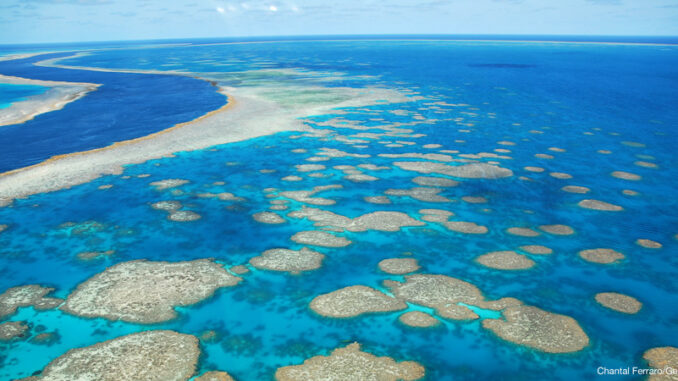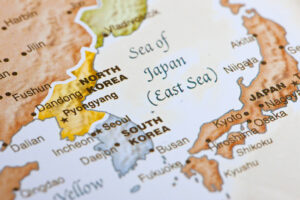
“Wiretapping” Scandal Intensifies
On March 4, President Trump sent out a tweet accusing former President Obama of wiretapping Trump Tower in the days leading up to the election. Since then, however, Trump has provided no evidence of his claim, and has avoided reporters’ questions about his accusation. President Obama denied any such activity. The FBI director also denies it. And after a briefing by intelligence officials, the Republican chairmen of the House and Senate Intelligence Committees have refuted it as well. Many key Republicans – including Speaker Paul Ryan, Attorney General Jeff Sessions, and even Vice President Pence – have joined Democrats in speaking out against Trump’s accusation, some of them calling for the president to issue an official apology to Obama.
Trump, however, has refused to back down. And on Thursday, the scandal took a new turn when Sean Spicer, the White House press secretary, accused the British spy agency GCHQ of being involved in wiretapping Trump. The GCHQ quickly denied the claim, which was based on comments from a Fox News commentator stating that President Obama used the GCHQ rather than American intelligence agencies to spy on Trump.
British officials were immediately outraged by Spicer’s claim and accused Trump of compromising the close relationship between the two nations (Britain is the US’s closest ally). However, neither Spicer nor Trump has issued any kind of public or even private apology for the accusation. Meanwhile, several senators – including key Republican Lindsey Graham of South Carolina – have vowed to get to the bottom of the wiretapping scandal as soon as possible.
What Do You Think?: Discussing Trump’s original tweet accusing Obama of wiretapping Trump Tower, Republican Representative Devin Nunes of California said, “Are you going to take the tweets literally? And if you are, then clearly the president was wrong.” Do you believe that the president’s tweets should be taken seriously, and that he should be held accountable for the statements he makes on Twitter? Explain your answer.
Dutch Vote NO on “Nexit”
The defeat of Geert Wilders, the far-right candidate, in last Thursday’s Dutch general elections has put to rest any conversations about a possible Dutch departure from the European Union, nicknamed “Nexit” – at least for the time being.
Geert Wilders ran on a platform of racism and Islamophobia. He vowed to close borders to migrants from Muslim nations, close mosques, and ban the Quran. He also pledged to take the Netherlands out of the EU, following in Britain’s footsteps.
Wilders was defeated by Mark Rutte, who won a historic third term as prime minister. Even though Wilders’ party won second place and gained several seats in the 150-seat legislature, Rutte has pledged that he will refuse to work with Wilder in the future.
Currently, the Dutch economy is strong, growing at two percent per year. However, the fact that 17 parties will enter parliament this year makes effective governing difficult. Though Rutte won the election, overall, parties who are hostile to the EU gained several seats in the parliament. This means that the Netherlands, while remaining in the EU, is likely to vote against EU measures such as fiscal bailouts for struggling member states.
What Do You Think?: In a debate last week, Wilder declared, “Netherlands does not belong to all. Do you hear me? The Netherlands belongs to the Dutch.” In a short paragraph, explain what you think Wilder meant by this statement. Do you agree with his position? Why or why not? Can you draw any connections between Wilders’ anti-immigrant sentiment and the current debate over immigration in the United States?
Great Barrier Reef Dying
Huge sections of Australia’s Great Barrier Reef have been declared officially dead in what scientists are calling an ecological catastrophe. Coral reefs require warm water but are very sensitive to temperature changes. Because of global warming, last year saw the highest ocean surface temperatures in history. As a result, two-thirds of the reef is now dead.
Aside from the beauty of the Great Barrier Reef, which can be seen from space, its loss has larger, potentially more serious consequences. Coral reefs are like “underwater rainforests” that populate only a small portion of the ocean but house a quarter of all marine species. For humans, coral reefs produce oxygen and form barriers that protect coastlines from storms. Reef tourism is a huge part of many countries’ economies, and an estimated half a billion people worldwide depend on reef fish for nutritional survival.
Though the Great Barrier Reef is receiving the most attention, coral reefs all over the world are dying at similar rates as ocean temperatures continue to rise. In the Christmas Islands, for example, a ten-month period of warmer water temperatures killed off 90 percent of its coral reef.
Scientists continue to do what they can to combat the change. A new initiative called 50 Reefs identifies the reefs with the best chance of survival and protects them from pollution, overfishing, and commercial development, hoping that someday these surviving reefs can be used to repopulate dead areas. Other scientists are attempting to “train” corals to withstand higher temperatures by exposing them to non-lethal levels of heat. It is possible too that some of the coral species may save themselves by migrating to the poles, where sea temperatures are cooler. But scientists also warn that climate change is happening so rapidly that it’s possible that neither scientists, nor the coral themselves, will be able to keep up.
What Do You Think? In the midst of the demise of the Great Barrier Reef, Australia’s government has continued to support fossil fuel development – a major contributor to global warming. In fact, the process is underway to build one of the world’s largest coal mines inland from the reef. Based on what you know from the news and other sources, why do you think the Australian government is continuing to make policies that contribute to climate change?
South Korea’s President Impeached
South Korea’s first female president, Park Geun-hye, was impeached and removed from power last Friday: the first impeachment in South Korea’s history. All eight justices of the Constitutional Court unanimously decided to remove her from power for violating the Constitution.

Ms. Park, 65, is the oldest daughter of Park Chung-he, who ruled South Korea as a dictator from 1961 to 1979. With her rule, she was hoping to reverse her father’s negative reputation and lead South Korea openly and fairly. However, she ceded a good deal of power to her childhood friend, Choi Soon-sil, who was not a Cabinet member or even a civil servant. The two women have been accused of working together to collect millions of dollars in bribes from companies such as Samsung.
Ms. Park’s power has been suspended since January, but after the verdict was announced on Friday, widespread protests broke out and quickly turned violent. Two elderly protestors were killed in the struggle. Meanwhile, Ms. Park will now face charges of bribery, extortion, and abuse of power.
Now that Ms. Park has been impeached, South Korea’s liberal party sees a chance to gain power for the first time in ten years. The liberal presidential candidate, Moon Jae-in, urges opening a dialogue with North Korea to hopefully diffuse the tense situation between the two nations. And while Mr. Moon has reasserted South Korea’s friendship with the U.S., he also says that his nation needs to learn to stand up to the U.S.’s demands.
